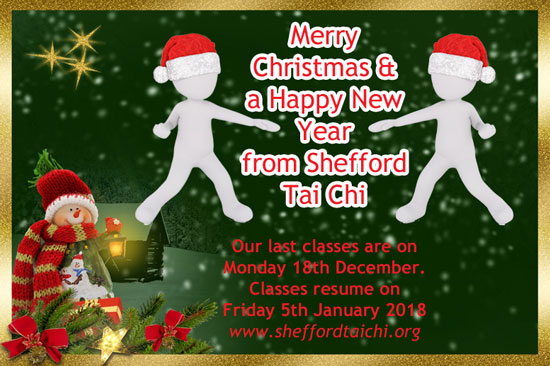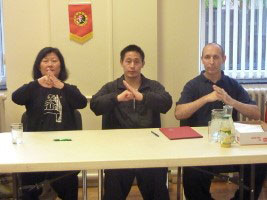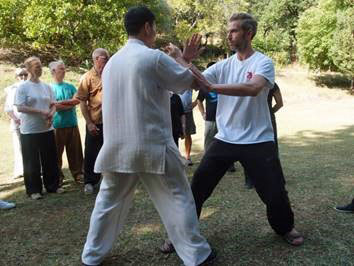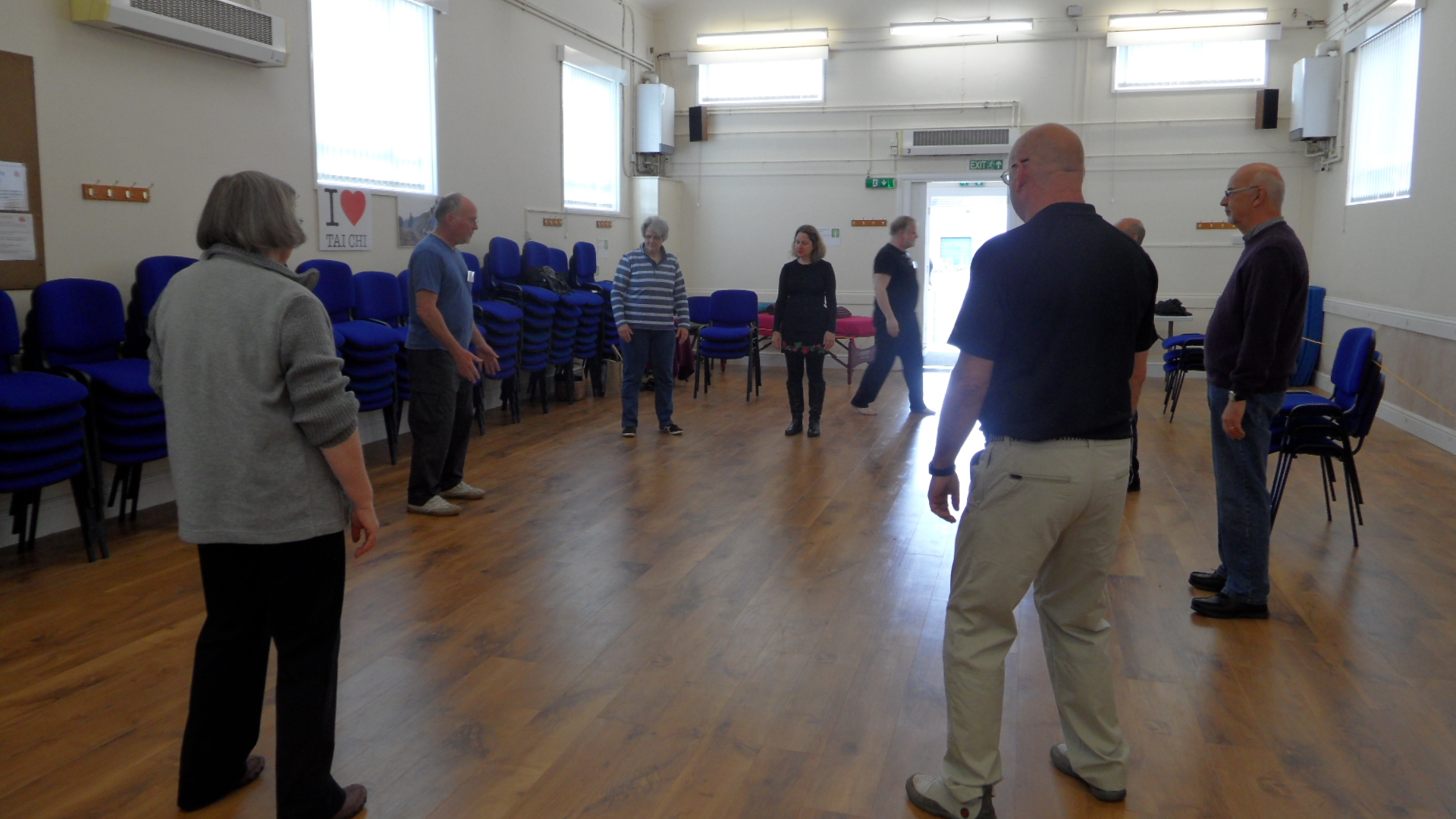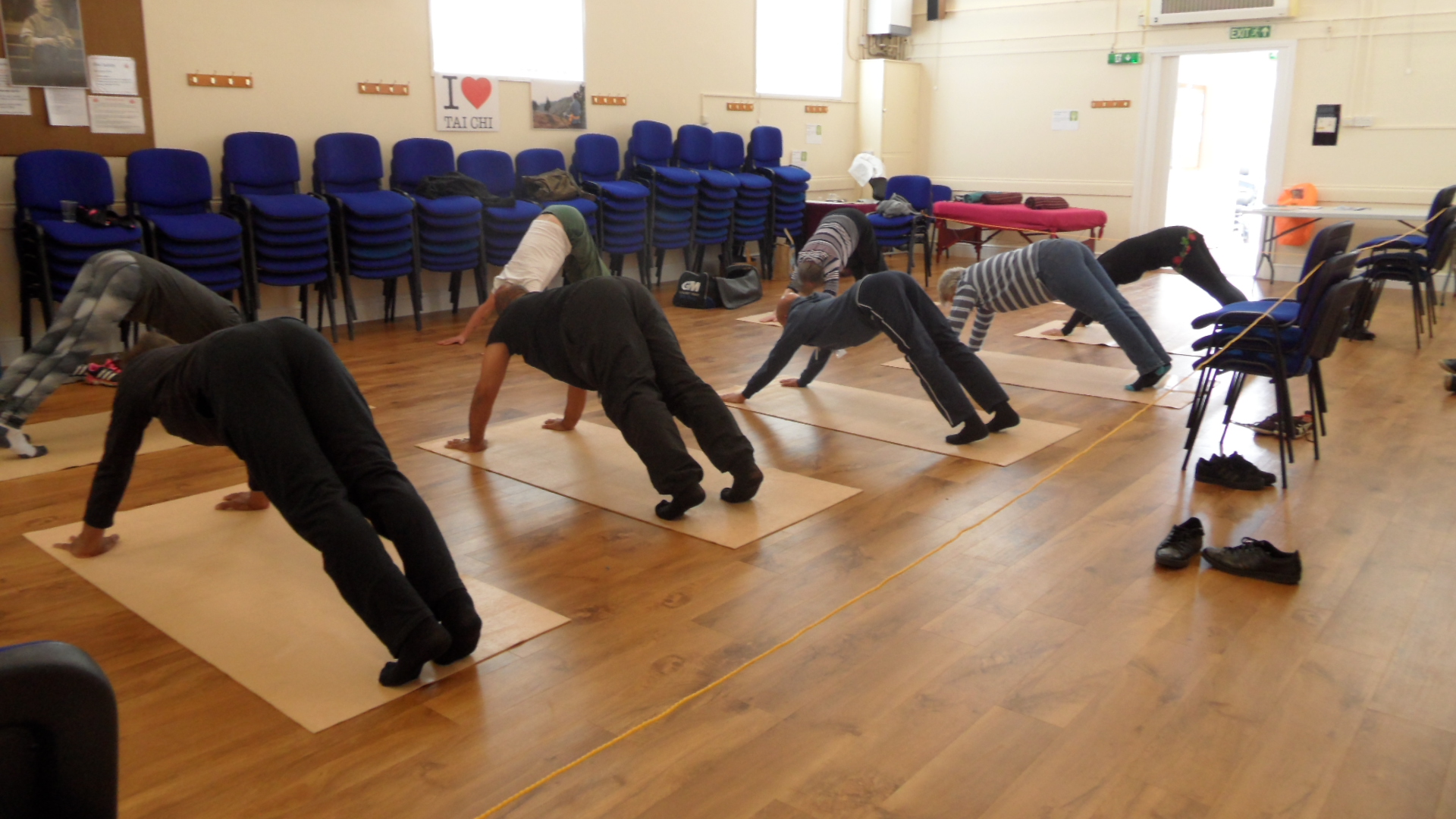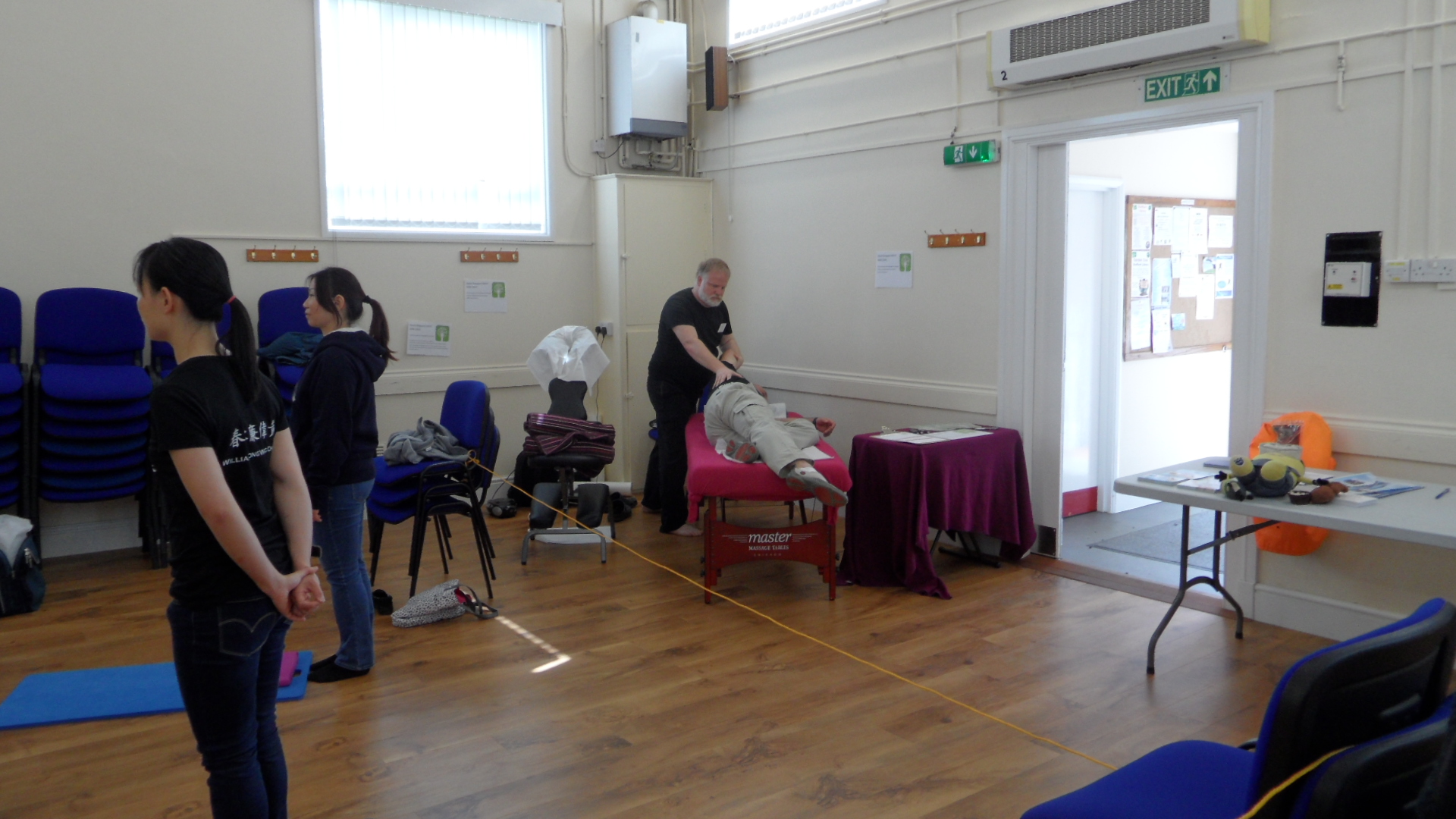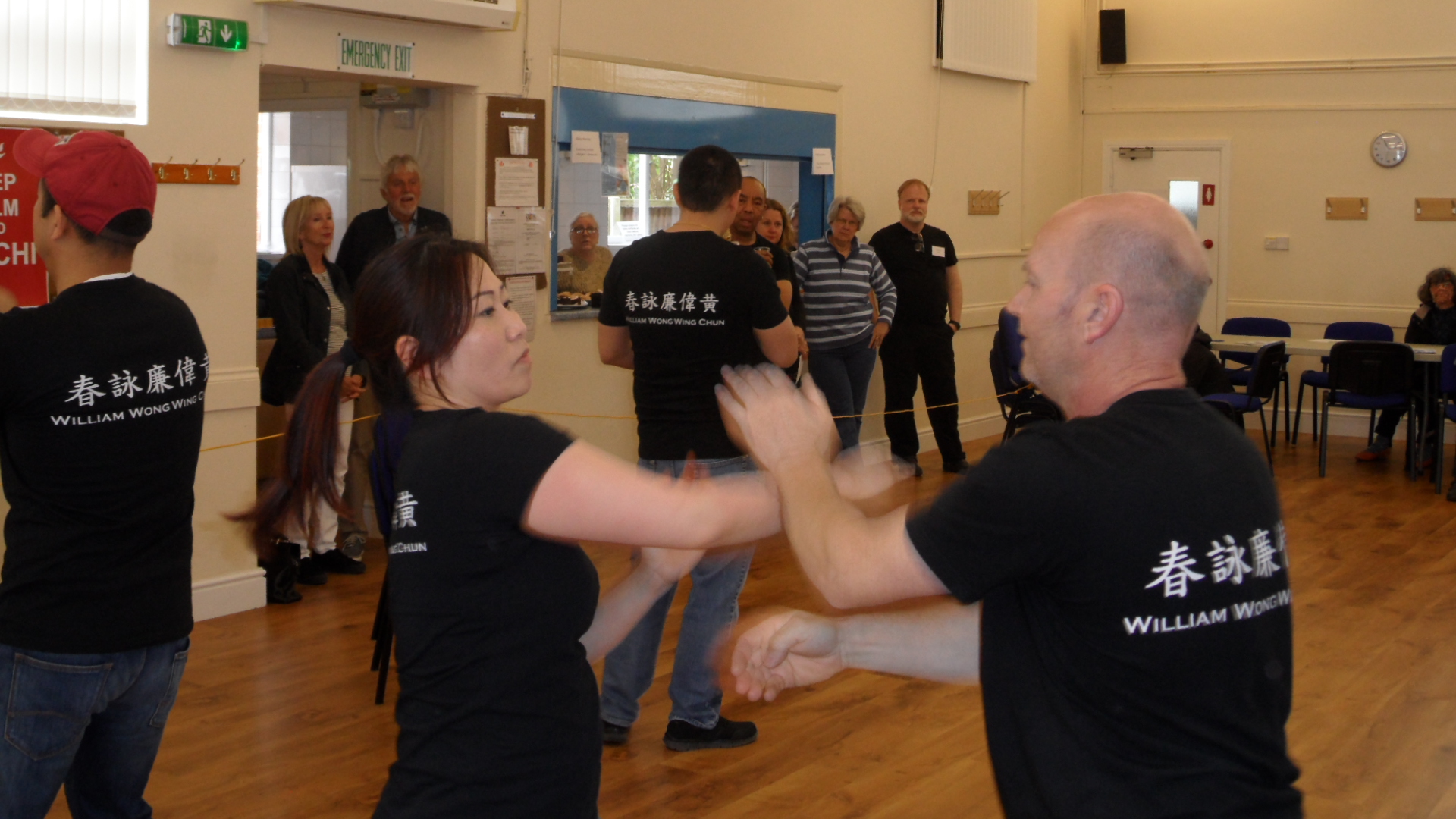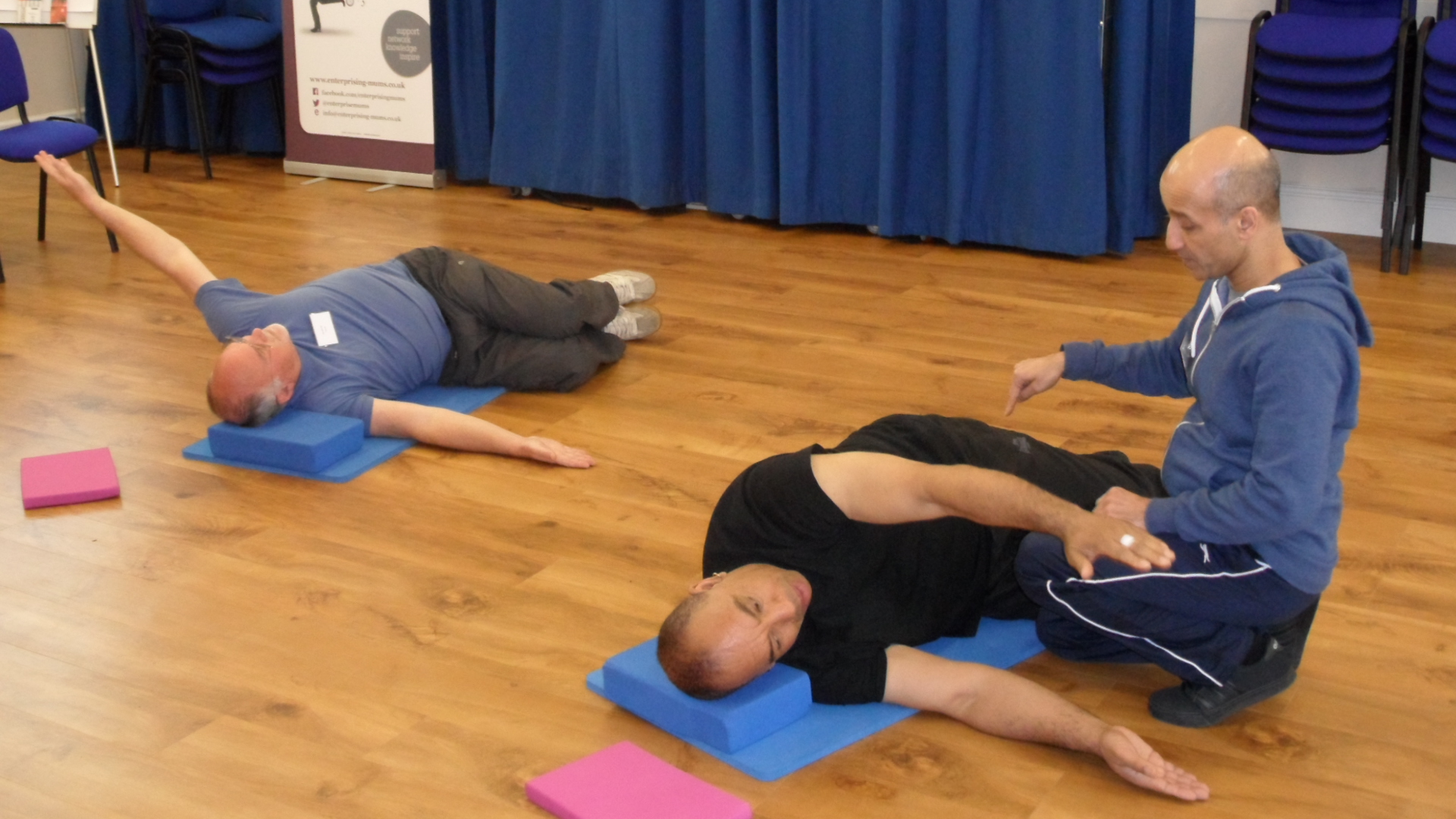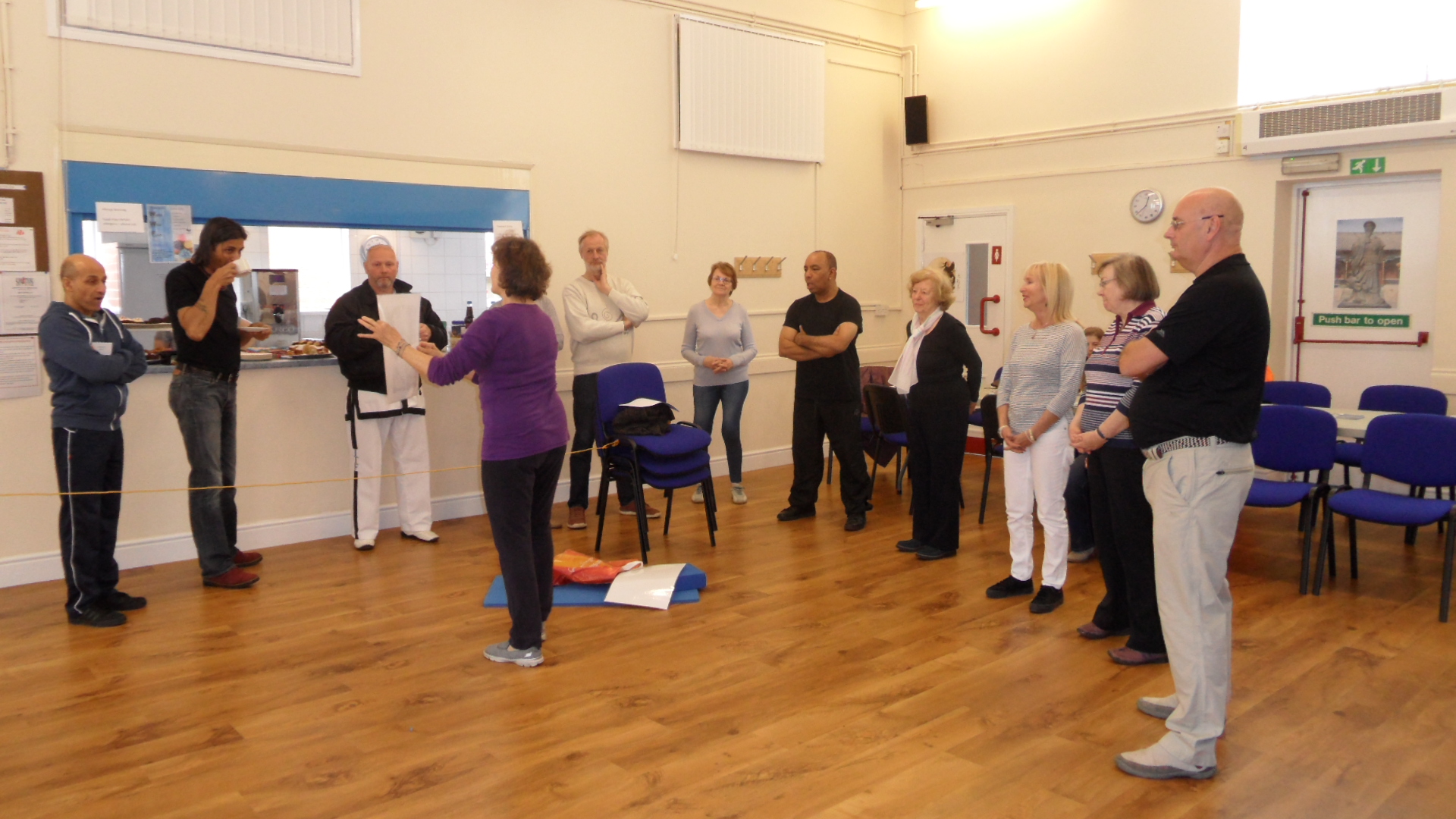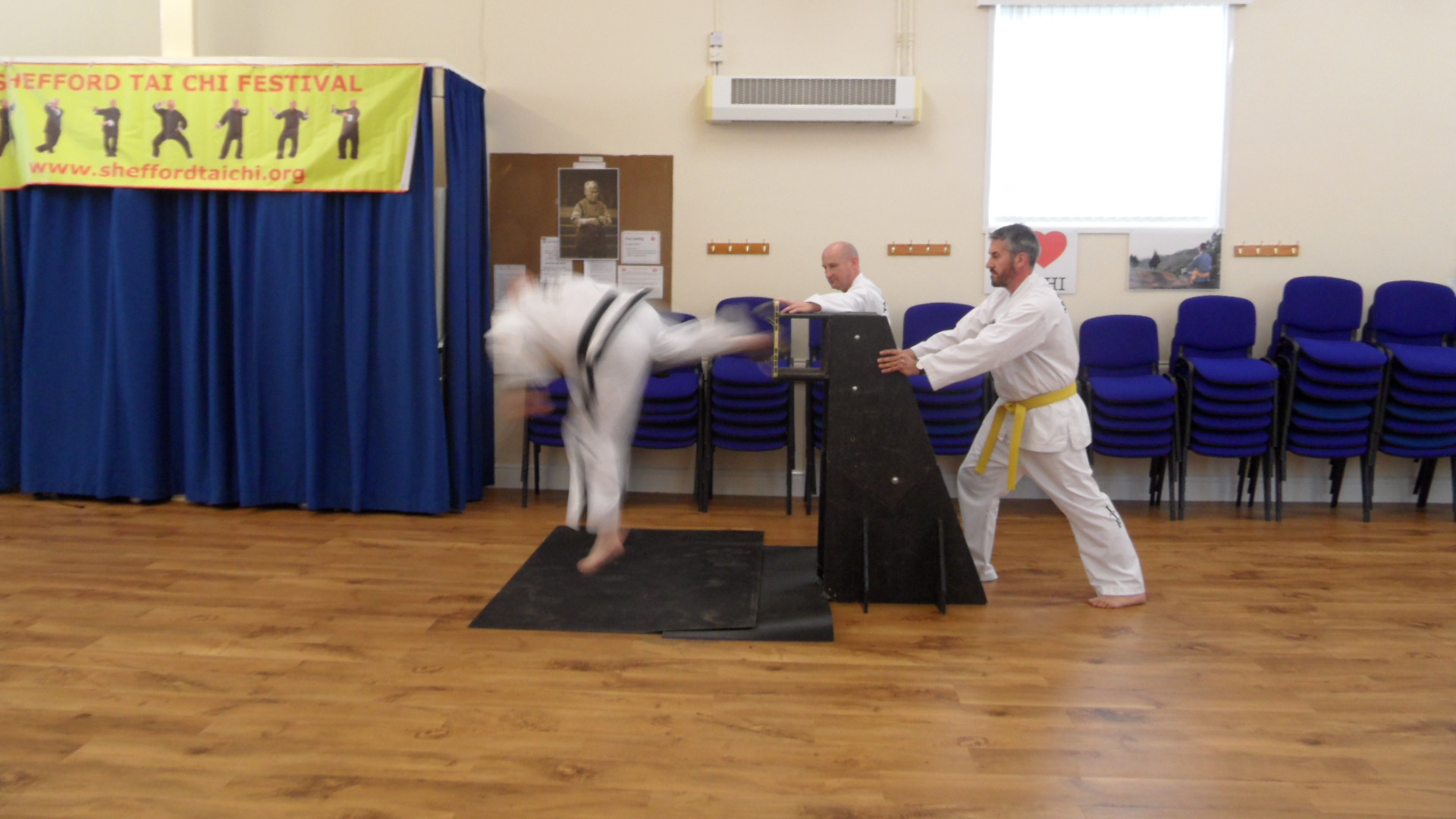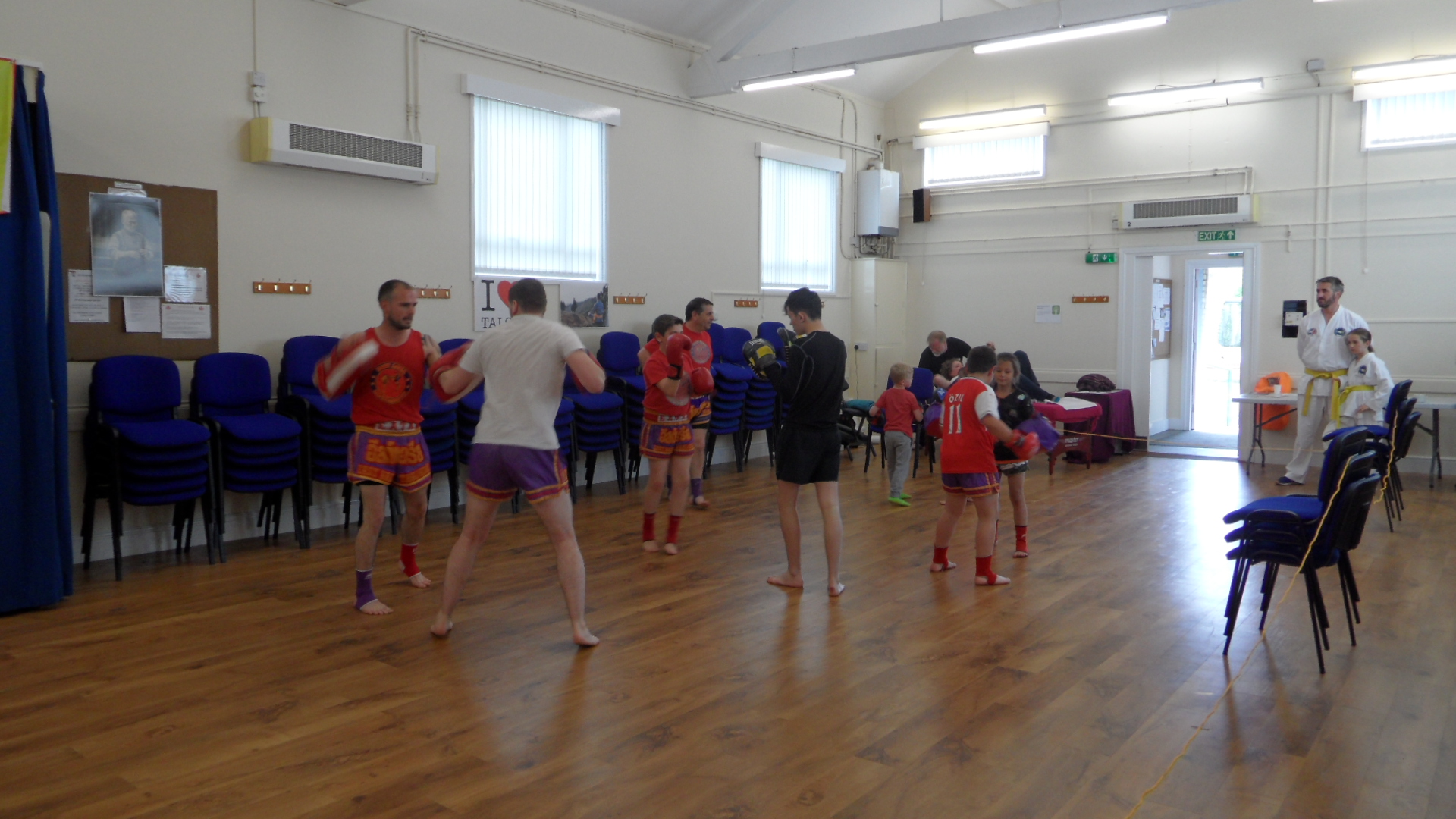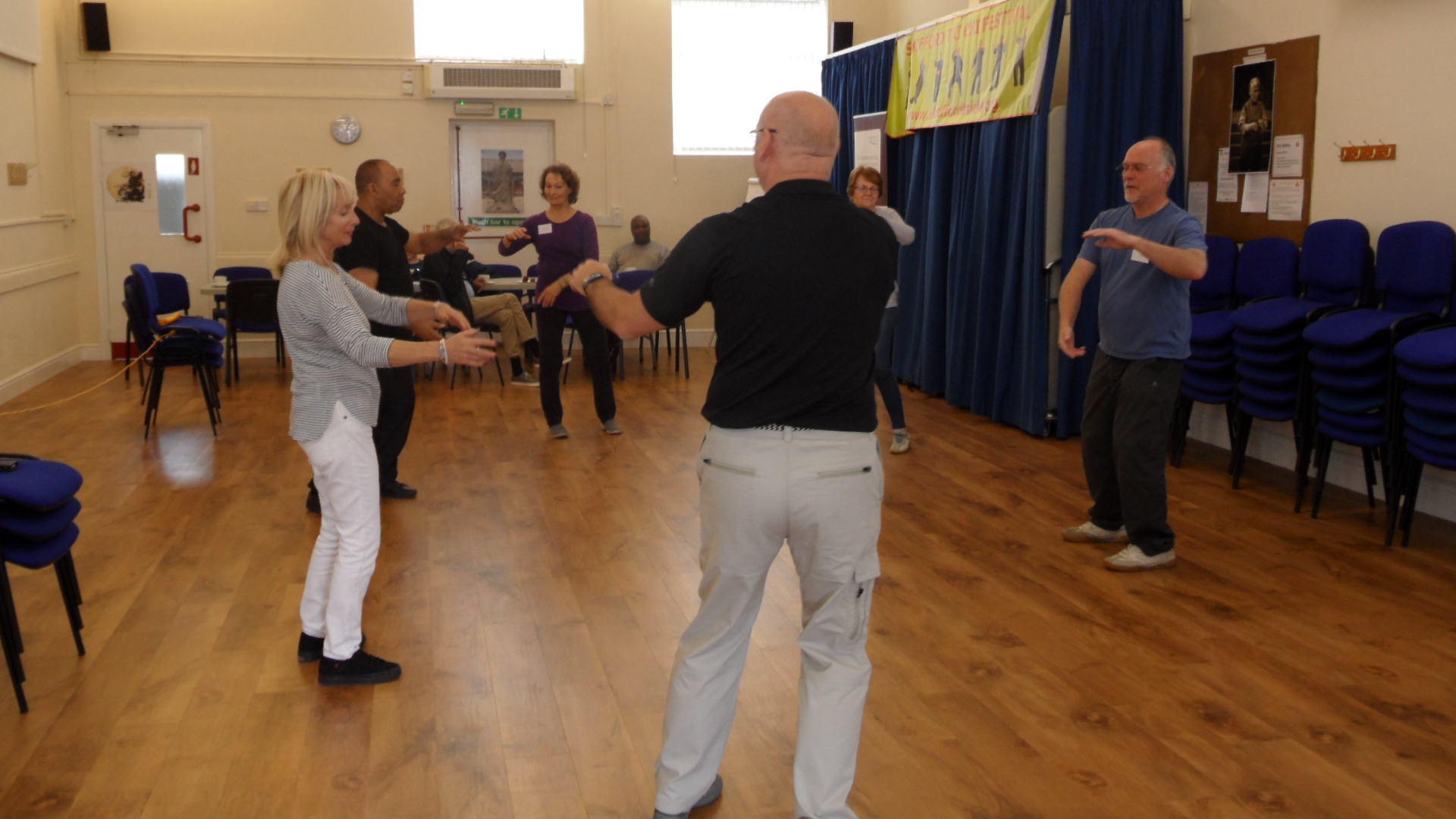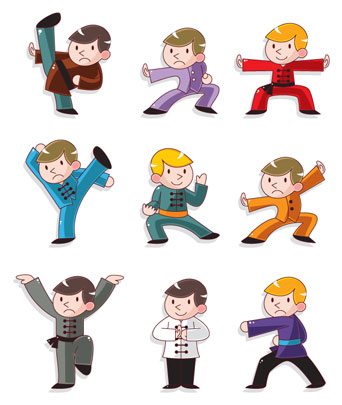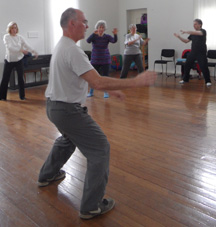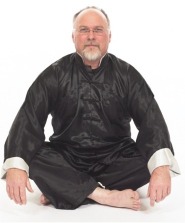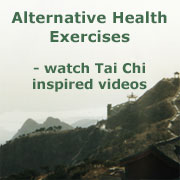Attending a martial arts class may well be very different to other activities you have undertaken and it should be remembered that Tai Chi is a martial art – and I believe it is extremely important that this link is maintained. This is part of their paradox which I have written about elsewhere. So the following are a few personal thoughts drawn from 45 years’ experience, which may forewarn and help a beginner to navigate and benefit from a class – they are all based on long held deeply personal ideas of equality, respect for the individual, and personal choice and responsibility, which are values I have found within martial arts and the underlying philosophies of Zen Buddhism and Taoism but sadly not so well understood elsewhere.
If the instructor says he/she is going to demonstrate, they will take care to be in a position to be observed but you can help yourself by moving to a position where you can see what you need to – which is probably at the front – so do not stand behind unless you actually want to see their back view. An obvious point but often forgotten.
Individual positions in the class may be quite loose – make sure that you can see the instructor and have room to move adequately – take care that you do not block the view of others or their practice space. You may need to adjust your position during the course of the class in this way you can respect your class mates and look after your own learning process.
Equally, you will benefit from knowing which is your left hand and which is your right – if you do not then be sure to copy the teacher attentively. When the teacher is demonstrating pay close attention, learn to observe thoroughly.
Learning anything new is difficult and stressful so if you have difficulty do not worry – we all did and still do! So do not expect that you will become “relaxed” at your first class – like most things it takes work. You may think that it is important to know the names of the moves but actually not at all necessary and often a distraction from learning the way of moving which is really much more important. Of course I use many of the names in my classes and there are lists on the internet but it is a mistake to concentrate on this. Likewise music in classes and the use of videos. By all means use videos as an aid memoire, but personally I find them only really of value once I have learned the basics from a teacher and frequently confuse the beginner.
Practice what you can remember between classes. I find there is a window after a class (24 hours for me) when repetition on my own is vital to learning new moves. Daily practice is then important to implant the memory – the gaps can be filled in at classes. I tend to offer that students can video short sections of a demonstration for personal use as an aid if they wish, otherwise there are many videos of the forms online. As for the exercises there are just so many, but following requests from my students I have put a selection online at www.alternativehealthexercises.org
Over the years I have been to classes where the teacher drives students to practice – turn up at every class etc., and to others where no comment is passed beyond encouragement to practice – of the two I far prefer the latter. It is up to you what you put in and consequently what you get out – your choice. Although if you do not actually learn the choreography then you may restrict what can be done in the class and so impact the learning of your classmates – a question of both self-interest and respect for others.
We are all adults and can choose to be at a class or not – if you want to train then you turn up. There is little point in talking about it – you are there or you aren’t. Turn up, you are taught – don’t and you aren’t.
In fact talking about it is often only a distraction but many people insist on doing so. Likewise, there is no compulsion to do anything once in the class (although a bit pointless if you don’t) as adult students can decide for themselves. Those choices add up over the years.
As a student you are paying the teacher but really that is not what it is all about – in my experience I have been lucky in finding teachers who are primarily motivated by a love of sharing the art not so much by the money – yes it is an issue but once dealt with then we move onto the training and the sharing of knowledge which is the really important part. This is not always the case and you will make your own mind up about the teacher you find.
Regarding injuries or medical problems, by all means tell your teacher about it, but they cannot do anything about your condition (however concerned they may be) and really the advice always comes to the same thing – that you work with your healthcare professional, do not over exert – adapt the exercises to suit your capability, rest if you need to, drink if you need and use the opportunity of the class to learn about your body, any pain that you may experience and how to work within the limits of your ability. These are surely obvious but may be worth repeating in case you have not considered them before. In this way you can perhaps learn how to look after yourself in the broadest sense, learn to work within your comfort zone, but also to expand the boundary a little in a way that you can handle.
Remember we are all responsible adults here so whatever the teacher says or does is only a suggestion – a sharing of their own experience – an offering of the opportunity to experience a certain type of movement so that you may find your own experience from which you can learn and choose how to manage your body through that experience.
There are three types of communication in a Tai Chi class:
- Verbal
- Demonstration
- Physical correction
They are all important – perhaps the most important and least understood is physical correction. This is not arbitrary but a well thought out and long established process that can achieve things otherwise not possible, so if you are not comfortable with it then discuss with the teacher, but ultimately it will limit your ability to learn and the teacher’s ability to teach. This is a given expectation in a martial arts class, so if the teacher seeks to make a physical correction or makes a direct suggestion to you which is outside your comfort zone in a way you choose not to go along with, then is the time to explain – “I have a knee/shoulder/back problem, do not want to be touched” or other so that the instructor can work with you the best they can. It is your body but you wouldn’t go for a massage unless you expected to be touched and manipulated would you – likewise in a martial arts class. Until you try you do not know your limit – and neither does the teacher who can work with you if you communicate with them. In Tai Chi often the advice is simply if it hurts don’t go there, make the movement smaller, find a way to make the movement more relaxed and softer, work around the pain – but then in health terms if it hurts to make a movement why would you do it anyway – you are an adult, you have a choice – simply modify the exercise to suit you. It is worth understanding that martial artists are often different in this respect and do often choose to do many painful things for the perceived benefits they may bring.
Partner work may be incorporated in your class – this can be a very useful part of the learning experience but will depend on the level of the class – if it is health focused then it can vary from observing a partner to moving arms together – in martial oriented classes it can get rough. Again it is a question of what you are “up for” and your choice but it would be sensible to choose a class that suits you. In any event there is a negotiation to be had with your teacher and your partner – which may be verbal or simply physical.
Non-verbal physical communication is a major part of martial arts but little understood by beginners who can be wary of physical contact – we ask questions by contact, we express intent by pressure, we answer by movement, we express emotions by our balance, we listen by touch and much, more. Learning to do this is an important way of learning about your body and how to work with it, if you do not “learn this language” then you actually cannot learn many things of great benefit or communicate fully since words are frequently inadequate ( only 30% of communication I believe).
It is important that you learn to look after yourself from your experience in all senses and learn to take responsibility for your own behaviour by being appropriate with your teacher and other students.
For context and other related articles please see the beginners guide at : http://www.sheffordtaichi.org/classes/ which covers:
For the history of Tai Chi see here.
For general reading of my other articles: please see here
Also for material by others that I have found useful please see the reading list here
and the links page here.

